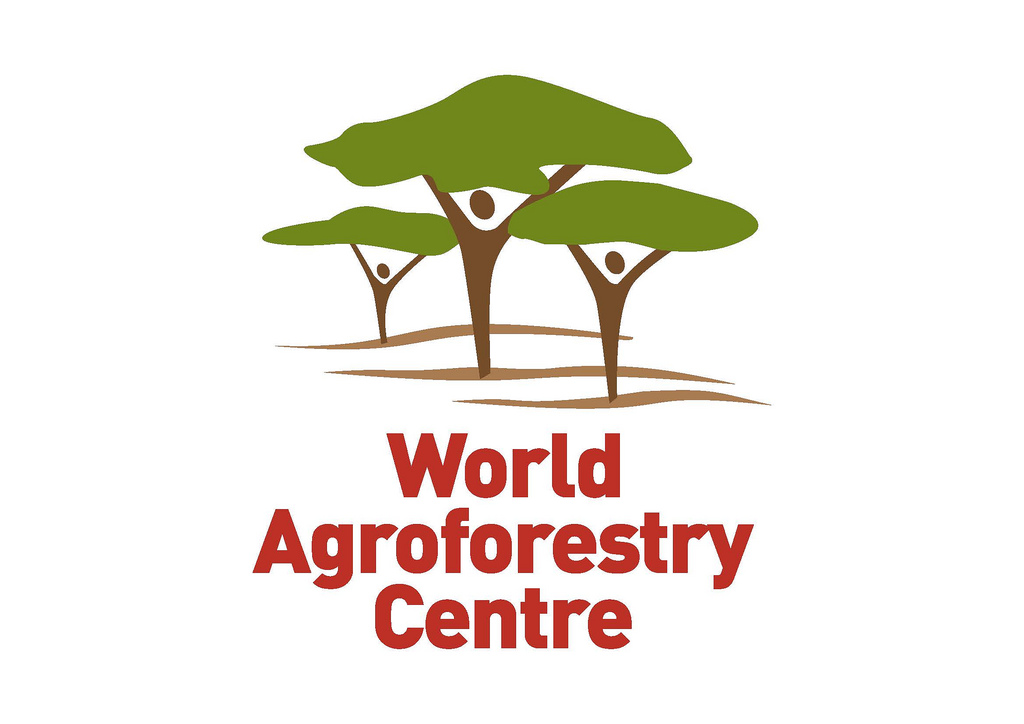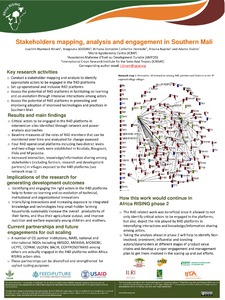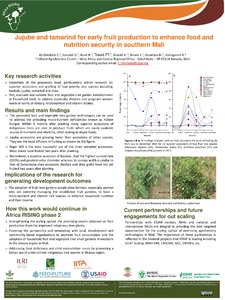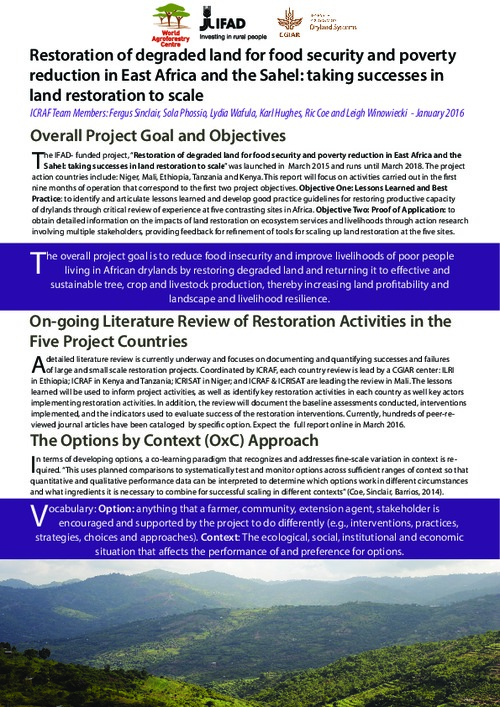Location
The World Agroforestry Centre (ICRAF) is a CGIAR Consortium Research Centre. ICRAF’s headquarters are in Nairobi, Kenya, with six regional offices located in Cameroon, China, India, Indonesia, Kenya and Peru.
The Centre’s vision is a rural transformation throughout the tropics as smallholder households increase their use of trees in agricultural landscapes to improve their food security, nutrition security, income, health, shelter, social cohesion, energy resources and environmental sustainability.
ICRAF's mission is to generate science-based knowledge about the diverse benefits - both direct and indirect - of agroforestry, or trees in farming systems and landscapes, and to disseminate this knowledge to develop policy options and promote policies and practices that improve livelihoods and benefit the environment.
The World Agroforestry Centre is guided by the broad development challenges pursued by the CGIAR. These include poverty alleviation that entails enhanced food security and health, improved productivity with lower environmental and social costs, and resilience in the face of climate change and other external shocks.
ICRAF's work also addresses many of the issues being tackled by the Sustainable Development Goals (SDGs) that aim to eradicate hunger, reduce poverty, provide affordable and clean energy, protect life on land and combat climate change.
Members:
Resources
Displaying 51 - 55 of 146Stakeholders mapping, analysis and engagement in southern Mali
Stakeholders mapping, analysis and engagement in southern Mali
Jujube and tamarind for early fruit production to enhance food and nutrition security in southern Mali
Spatial variation in tree density and estimated aboveground carbon stocks in Southern Africa
Variability in woody plant species, vegetation assemblages and anthropogenic activities derails the efforts to have common approaches for estimating biomass and carbon stocks in Africa. In order to suggest management options, it is important to understand the vegetation dynamics and the major drivers governing the observed conditions. This study uses data from 29 sentinel landscapes (4640 plots) across the southern Africa. We used T-Square distance method to sample trees.
Restoration of degraded land for food security and poverty reduction in East Africa and the Sahel: taking successes in land restoration to scale
The present document is a brief technical report highlighting activities relating to the options by context approach. The IFAD- funded project, “Restoration of degraded land for food security and poverty reduction in East Africa and the
Sahel: taking successes in land restoration to scale” was launched in March 2015 and runs until March 2018. The project
action countries include: Niger, Mali, Ethiopia, Tanzania and Kenya. This report will focus on activities carried out in the first





